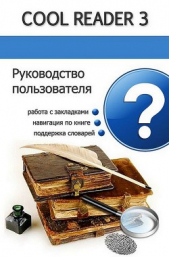Словарь американских идиом: 8000 единиц

Словарь американских идиом: 8000 единиц читать книгу онлайн
Это обновленное и дополненное издание, содержащее более 8000 идиоматическихслов и выражений, причем каждое из которых снабжено грамматическим объяснениеми практическим примером. Словарь содержит лексемные идиомы, фразеологическиеединицы и поговорки, имеющие особенное значение. В нем приведены наиболееупотребительные выражения только американского английского языка. Этот словарь?—?идеальное пособие для студентов, часто разъезжающих бизнесменов и простопутешественников.
Внимание! Книга может содержать контент только для совершеннолетних. Для несовершеннолетних чтение данного контента СТРОГО ЗАПРЕЩЕНО! Если в книге присутствует наличие пропаганды ЛГБТ и другого, запрещенного контента - просьба написать на почту [email protected] для удаления материала
[water down]{v.} To change and make weaker; weaken. •/The Senator argued that the House should water down the bill before passing it./ •/The African American did not accept watered down Civil Rights legislation./ •/After talking with the management about their demands, the workers agreed to water them down./ •/The teacher had to water down the course for a slow-learning class./
[watered down]{adj.} Weakened; diluted. •/The play was a disappointing, watered down version of Shakespeare’s Othello./
[waterfront] See: COVER THE WATERFRONT.
[watering hole] or [place] {n. phr.} A bar, pub, or nightclub where people gather to drink and socialize. •/I like "The Silver Dollar" — it is my favorite watering hole in all of Sidney, Nebraska./
[Waterloo] See: MEET ONE’S WATERLOO.
[water over the dam] or [water under the bridge] {n. phr.} Something that happened in the past and cannot be changed. •/Since the sweater is too small already, don’t worry about its shrinking; that’s water over the dam./ Compare: CRY OVER SPILLED MILK.
[water under the bridge] See: WATER OVER THE DAM.
[water wagon] See: ON THE WAGON.
[way] See: ALL THE WAY or THE WHOLE WAY, BY THE WAY, BY WAY OF, COME A LONG WAY, CUT BOTH WAYS or CUT TWO WAYS, EVERY WHICH WAY, FROM WAY BACK, GO OUT OF ONE’S WAY, HARD WAY, HAVE A WAY WITH, IN A BAD WAY, IN A BIG WAY, IN A FAMILY WAY, IN A WAY, IN ONE’S WAY or IN THE WAY, KNOW ONE’S WAY AROUND or KNOW ONE’S WAY ABOUT, LEAD THE WAY, MAKE ONE’S WAY, MAKE WAY, NOT KNOW WHICH WAY TO TURN, NO TWO WAYS ABOUT IT, ON THE WAY or ON ONE’S WAY, PARTING OF THE WAYS, PUT IN THE WAY OF or PUT IN ONE’S WAY, PUT OUT OF THE WAY, RUB THE WRONG WAY, SEE ONE’S WAY CLEAR.
[way off]{adj. phr.} At a great distance from a particular point (said of a discrepancy). •/We were way off on our calculations; the house cost us twice as much as we had thought./
[wayside] See: FALL BY THE WAYSIDE.
[way the wind blows] or [how the wind blows] {n. phr.} The direction or course something may go; how things are; what may happen. •/Most senators find put which way the wind blows in their home state before voting on bills in Congress./
[ways and means]{n. plural} Methods of getting something done or getting money; how something can be done and paid for. •/The boys were trying to think of ways and means to go camping for the weekend./ •/The United States Senate has a committee on ways and means./
[wear] See: IF THE SHOE FITS — WEAR IT, WASH AND WEAR, WORSE FOR WEAR.
[wear and tear]{n. phr.} Deterioration through use. •/After 75,000 miles there is usually a lot of wear and tear on any car./
[wear away] See: WEAR DOWN.
[wear blinders] or [blinkers] {v. phr.} To refuse or be unable to consider alternative ways of thinking or acting. •/Anybody who disputes the importance of learning languages is wearing blinders./
[wear down], [wear off] or [wear away] {v.} 1. To remove or disappear little by little through use, time, or the action of weather. •/Time and weather have worn off the name on the gravestone./ •/The eraser has worn off my pencil./ •/The grass has worn away from the path near the house./ 2. To lessen; become less little by little. •/The people went home as the excitement of the fire wore off./ •/John could feel the pain again as the dentist’s medicine wore away./ 3. To exhaust; tire out, win over or persuade by making tired. •/Mary wore her mother down by begging so that she let Mary go to the movies./ Compare: DIE OUT.
[wear on]{v.} 1. To anger or annoy; tire. •/Having to stay indoors all day long is tiresome for the children and wears on their mother’s nerves./ 2. To drag on; pass gradually or slowly; continue in the same old way. •/Johnny tried to wait up for Santa Claus but as the night wore on, he couldn’t keep his eyes open./ •/As the years wore on, the man in prison grew old./ •/The boys' quarrel wore on all afternoon./
[wear one’s heart on one’s sleeve] also [pin one’s heart on one’s sleeve] {v. phr.} To show your feelings openly; show everyone how you feel; not hide your feelings. •/She wears her heart on her sleeve. It’s easy to see if she is sad or happy./ •/Sometimes it is better not to pin your heart on your sleeve./ Compare: OPEN ONE’S HEART.
[wear out]{v.} 1a. To use or wear until useless. •/Bobby got a toy truck that would run on a battery, and he used it so much that he soon wore it out./ •/The stockings are so worn out that they can’t be mended any more./ Compare: GIVE OUT(4), USE UP. 1b. To become useless from use or wear. •/The old clock finally wore out./ •/One shoe wore out before the other./ 2. or [tire out] To make very tired; weaken. •/The children played inside when it rained, and they soon wore out their mother./ •/When Dick got home from the long walk, he was all worn out./ — Often used with "oneself". •/Don’t wear yourself out by playing too hard./ Compare: GIVE OUT(4). 3. To make by rubbing, scraping, or washing. •/The waterfall has worn out a hole in the stone beneath it./
[wear out one’s welcome]{v. phr.}, {informal} To visit somewhere too long or come back too often so that you are not welcome any more. •/The Smith children have worn out their welcome at our house because they never want to go home./ •/This hot weather has worn out its welcome with us./
[wear the trousers] or [wear the pants] {v. phr.}, {informal} To have a man’s authority; be the boss of a family or household. •/Mr. Wilson is henpecked by his wife; she wears the trousers in that family./ •/Mrs. Jones talks a lot but Mr. Jones wears the pants in their house./ Compare: RULE THE ROOST.
[wear thin]{v.} 1. To become thin from use, wearing, or the passing of time. •/My old pair of pants has worn thin at the knees./ •/This old dime has worn very thin./ 2. To grow less, or less interesting; decrease. •/The joke began to wear thin when you heard it too many times./ •/The teacher’s patience began to wear thin when he saw that no one knew the lesson./
[wear well]{v.} 1. To continue to be satisfactory, useful, or liked for a long time. •/My old overcoat has worn very well./ •/Their marriage has worn well./ •/That author wears well./ Compare: STAND UP(2). 2. To carry, accept, or treat properly or well. •/Grandfather wears his years well./ •/Tommy has won many honors but he wears them well./
[weasel out]{v. phr.} To renege on a previous promise; not keep an obligation for some not always straight reason. •/I’m so tired I think I am going to weasel my way out of going to that meeting this afternoon./
[weasel word]{n.}, {informal} A word which has more than one meaning and may be used to deceive others. •/When the thief was being questioned by the police, he tried to fool them with weasel words./
[weather] See: FAIR-WEATHER FRIEND.
[weather eye]{n.} 1. Eyes that can tell what the weather will be. •/Grandfather’s weather eye always tells him when it will rain./ 2. Eyes ready or quick to see; careful watch. — Usually used in phrases like "keep a weather eye on", "open", or "out for". •/Mrs. Brown kept a weather eye on the children so they wouldn’t hurt each other./ •/Keep a weather eye out for Uncle George at the store./ •/Keep a weather eye open for deer./ •/The police have a weather eye out for the robbers./ Compare: LOOK OUT.

























